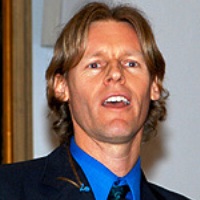By Alyn Ware*
IDN-InDepth NewsViewpoint
NEW YORK (IDN) – The ATOM Project, an exciting new initiative to build global support for nuclear abolition, was launched at a parliamentary assembly in Astana, Kazakhstan on August 29, the International Day Against Nuclear Tests.
The project, entitled Abolish Testing: Our Mission (ATOM), highlights the catastrophic humanitarian consequences of the use of nuclear weapons – particularly the nuclear tests conducted in Kazakhstan that have adversely affected the health and lives of nearly 2 million people. The images of the survivors, though sometimes difficult to witness, are featured in the campaign in order to raise awareness surrounding the damage nuclear testing can cause.
Kazakhstan President Nursultan Nazarbayev launched the project at the opening plenary of the assembly which included participants from over 70 parliaments from around the world including from nuclear weapons possessing states and nuclear allies. The assembly was organised by Parliamentarians for Nuclear Nonproliferation and Disarmament (PNND), the parliament of Kazakhstan, and the Nazarbayev Centre.
“We have an opportunity to once more remind the world about the tragic consequences of the nuclear testing, and push the global community towards more decisive actions to achieve final and definitive ban of such testing,” said President Nazarbayev. “In this regard, Kazakhstan launches today the International campaign The ATOM Project.”
German Foreign Minister Guido Westerwelle commended Kazakhstan at the assembly for launching the project and gave his support.
Westerwelle emphasized the unprecedented importance of disarmament and non-proliferation in an ever more interconnected world. He explicitly commended the country for its role in the pursuit of a world without nuclear weapons. After the Soviet Union had been broken up, Kazakhstan decided against nuclear weapons and dismantled its arsenal. Westerwelle highlighted the fact that, “Although nearly 500 nuclear weapons were tested in Kazakhstan during the Soviet era, Central Asia has now become a region free of nuclear weapons,” he said.
Honorary ATOM Project Ambassador Karipbek Kuyukov, an heroic survivor from the effects of nuclear tests, spoke at the assembly about the horrific impact of the tests on the lives of Kazakhstan peoples – “Many of my relations have died from the radiation from the nuclear tests,” he said. “In one family first the father then the mother then all the children passed away – the whole family of 10. I myself have no arms to hug you, but a heart as big as the open space of Kazakhstan ready to embrace the world for peace and nuclear disarmament.”
Nuke testing genie: seal the bottle
Dr Lassina Zerbo, representing the Comprehensive Nuclear Test Ban Treaty Organisation (CTBTO) said: “Since the CTBT was adopted in 1996, the genie of nuclear testing has virtually been pushed back into the bottle. In contrast to some 400 explosions every decade since 1945, there were only two tests in the last decade. However, until we seal the bottle once and for all, until we bring the Treaty into force, none of us can feel safe.”
Douglas Roche, founding chair of PNND and the Middle Powers Initiative (MPI), called on parliamentarians to strengthen their actions in their legislatures – guided by the Parliamentary Appeal for Nuclear Abolition adopted at the assembly. Roche outlined the MPI Framework Forum – an informal process of governments exploring what would be required for establishing the framework for a nuclear-weapons-free world – and announced the next meeting to be hosted by the German Foreign Ministry in Berlin in February 2013.
Roche also called for a new effort of heads of government – similar to the Six Nation Initiative of 1984-1989 – to elevate the call and commence the process to achieve a nuclear-weapons-free world. His proposal was explored in more detail by Jonathan Granofff, President of the Global Security Institute in a subsequent panel of the assembly.
This assembly in Kazakhstan, which included a field trip to the former Soviet nuclear test site in Semipalatinsk, has energized parliamentarians from around the world to step up their action to abolish nuclear weapons, including through the spread of nuclear-weapon-free zones and the promotion of a global treaty to ban nuclear weapons.
*Alyn Ware is Global Coordinator of Parliamentarians for Nuclear Non-proliferation and Disarmament (PNND), based at its UN office in New York. This article from PNND is being re-published by arrangement with the writer. [IDN-InDepthNews – September 5, 2012]
2012 IDN-InDepthNews | Analysis That Matters
Portrait image: Alyn Ware | Credit: disarmsecure.org
Follow us on Twitter and Facebook:
http://twitter.com/InDepthNews
http://www.facebook.com/idn.indepthnews

